#4 MISTAKE: Not asking your patient enough questions about potential preexisting conditions
QUESTION: How does thoroughly understanding your patient’s pre-existing injuries help with the care you provide and also help their personal injury claim?
ANSWER: Understanding your patient’s past accidents, pre-existing injuries, and similar treatment they’ve received is critical for providing them the best possible care and to protect their personal injury claim. Asking detailed questions about their medical history and past health issues is necessary, as incomplete information can affect your credibility and the outcome of your patient’s claim. Varying your questions will help uncover a more complete and accurate medical history, essential for effective treatment planning and supporting their claim.
Not asking your patients enough questions about potential preexisting conditions they may have is the fourth biggest mistake that can happen with your patient’s personal injury claim.
We all know how important our credibility is. You can be the most knowledgeable medical provider in your field, but if the insurance company can attack your credibility, they’ve done a lot of damage. Your credibility impacts the adjuster’s, arbitrator’s, and jury’s opinion as to causation and prognosis.
While credibility doesn’t affect the recovery of your patient’s injuries, it will most definitely affect their personal injury claim and settlement recovery.
One of the best ways to protect your credibility is by making sure you are aware of and understand any preexisting conditions your patient has. Having your patient complete a questionnaire before you begin treating them about any prior injuries — especially neck or back injuries is critical and an essential first step in beginning the dialog with your patient about any similar past injuries they may have.
It can be surprisingly difficult to get accurate information about past problems, similar issues, and treatment. As attorneys, we deal with this issue all too often with our clients.
Getting an accurate pre-accident history comes down to how questions are framed, defined, asked, and reasked in different ways.
Asking if they’ve had prior neck or back problems seems like it should get you the information you need. It rarely does for us as attorneys. Someone can have periodic neck symptoms that they don’t see as rising to the level of a “problem”. It is extremely helpful to define what you mean by a “problem”. By defining the “problem”, it is surprising how it can bring about a very different answer.
Asking questions like, have they been in a car accident or had an on-the-job injury that required them to have medical treatment may help spark their memory.
It’s not that they are concealing information from you. Rather, they don’t understand the importance of you knowing the details of their medical history so that you’re in the best possible position to help them navigate the complexity of the personal injury claims process.
So, even if your patient responds with ‘no’ to prior injuries on their intake questionnaire — and you follow up and ask them again in person about their previous injuries— and they say “no” during their exam as well, it’s understandable that you would think you’ve covered getting information about your patient’s previous medical history. However, there’s more you can do to ensure you know what you need to know about any preexisting conditions your patient may have.
We all store and retrieve information about our past experiences differently. This means that sometimes it takes asking the same question in several different ways to get the vital information you need to protect your credibility and your patient’s claim.
When I talk to my clients about pre-existing conditions, I start off the questions with something like, “Have you ever had a neck problem?” They’ll say, “no.” Then I ask, “Have you ever seen a chiropractor?” “No, I haven’t.” I followed up by asking, “Have you ever injured your neck?” “Nope, never.” Then I ask, “Have you ever had any on the job injury claims?” “Oh yeah, I did!” I ask, “What happened?” They say, “I hurt my neck.” Then I ask, “Oh, did you get any medical treatment?” “Oh yeah, I saw a chiropractor.”
This type of conversation happens all the time with my clients.
It’s only by asking for the important information you need in different ways, that you can feel truly confident you know what you need to know about your patient’s past injuries and treatment. Talking with your patient about their preexisting conditions is not only critical to their care but also to your credibility — and their personal injury claim. Asking questions in varied ways will help draw out the information that you need to help them — and help you.
We’re here to be a bridge of support for you and your patients.
We have developed a robust library of information for your patients who have been injured in an accident, which can be found in the INJURED? START HERE portal on our website.
There are 40 topic-focused articles, with accompanying videos, organized into the four categories that include the personal injury claim-related questions we’re asked most often, which include:
- Top 10 Personal Injury Claim Mistakes to Avoid
- What You Need to Know About Your Claim
- How Are My Medical Bills & Wage Loss Paid
- How to Prepare for Your Independent Medical Exam
Each article provides advice and guidelines to help your patients navigate each phase of the personal injury claims process. Whether we represent your patient or not, we are passionate about them knowing how to protect their rights, get the medical care they need, and avoid the mistakes that can harm their personal injury claim.
Each article provides advice and guidelines to help your patients navigate each phase of the personal injury claims process. Whether we represent your patient or not, we are passionate about them knowing how to protect their rights, get the medical care they need, and avoid the mistakes that can harm their personal injury claim.
Additionally, if it would be helpful to have the information we feature on our website available in your office to pass along to your patients, we’ve developed brochures for each of the four article series -- in both English and Spanish that we’re happy to send to your office. Please complete the form below and we’ll get them out to you promptly.












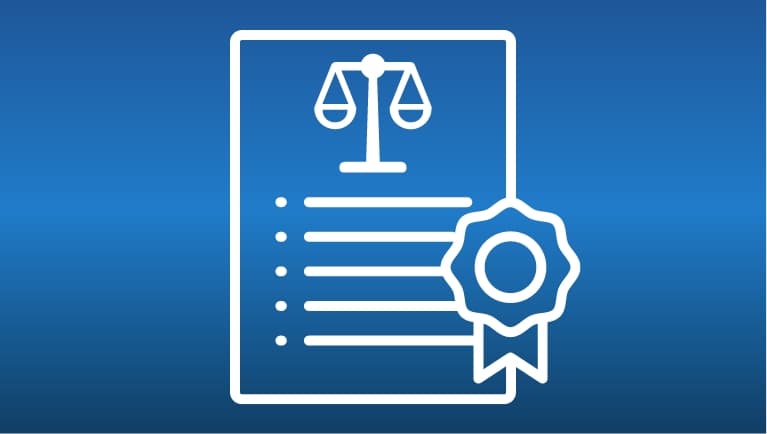


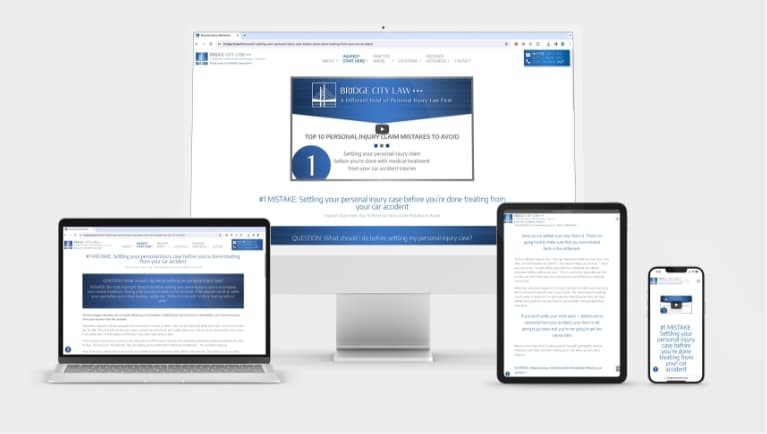
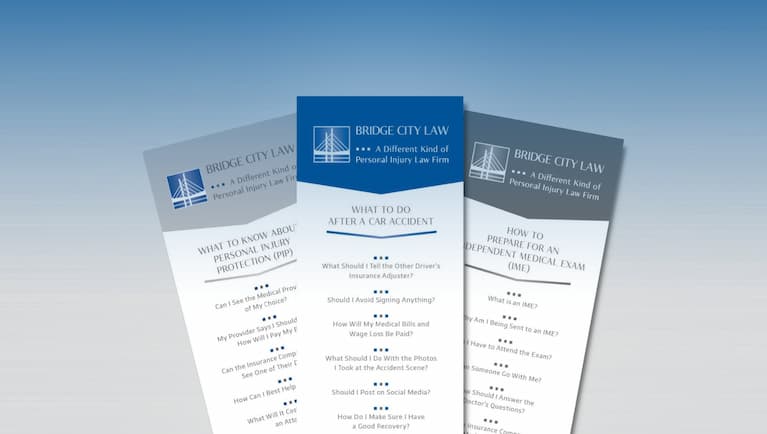
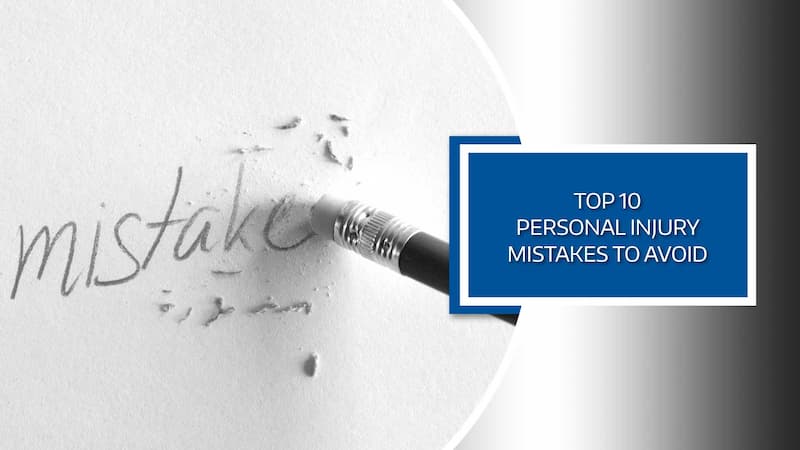
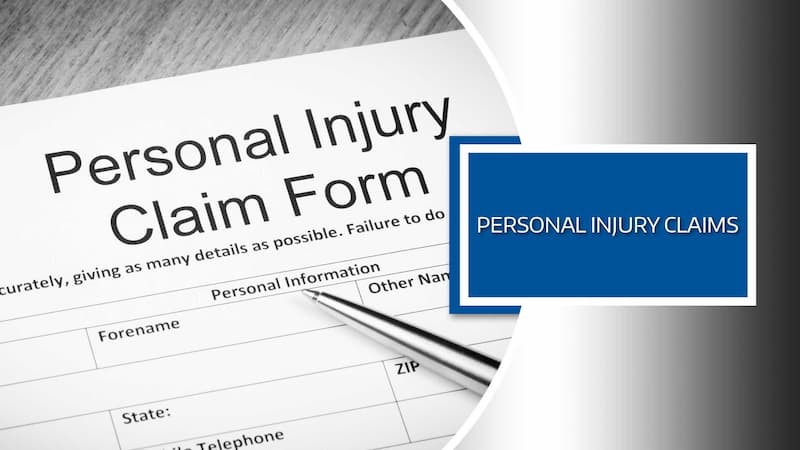
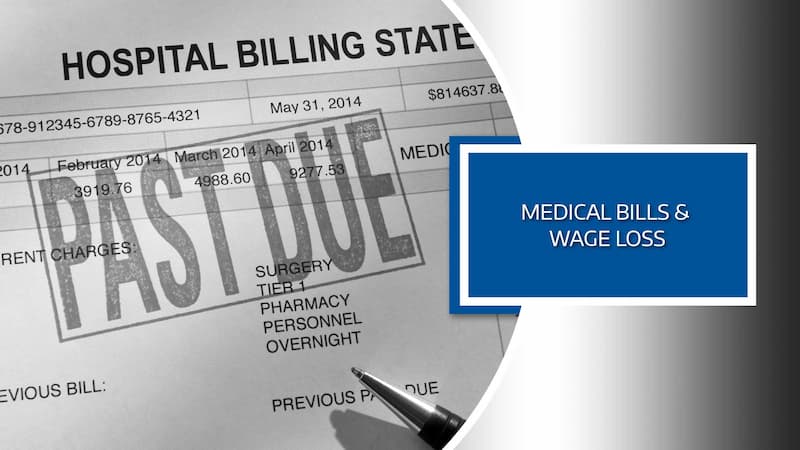
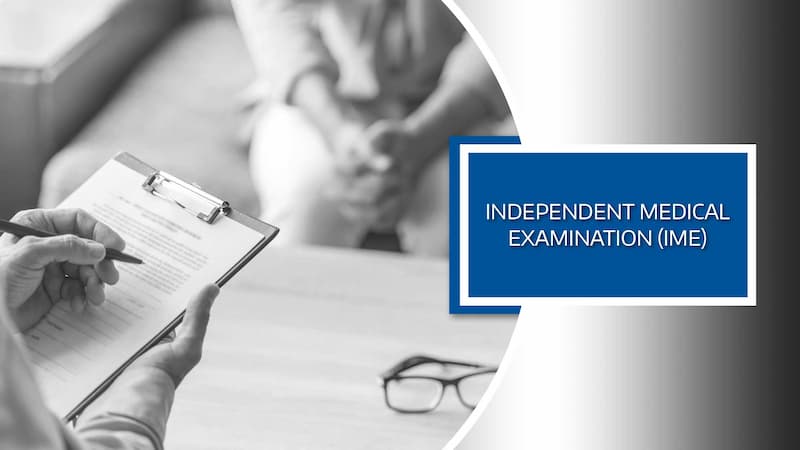
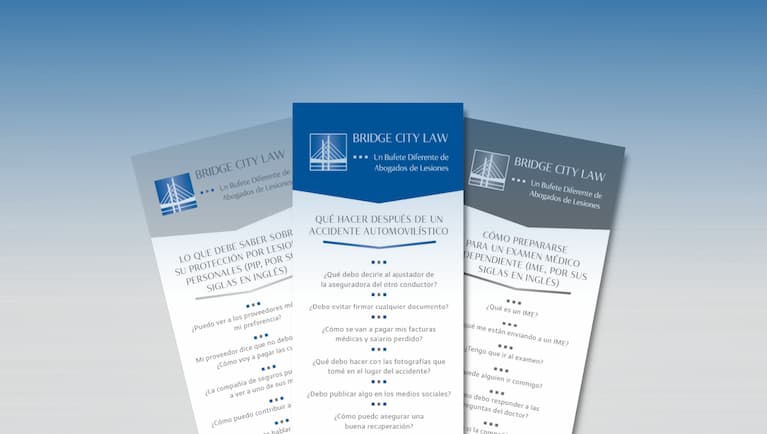







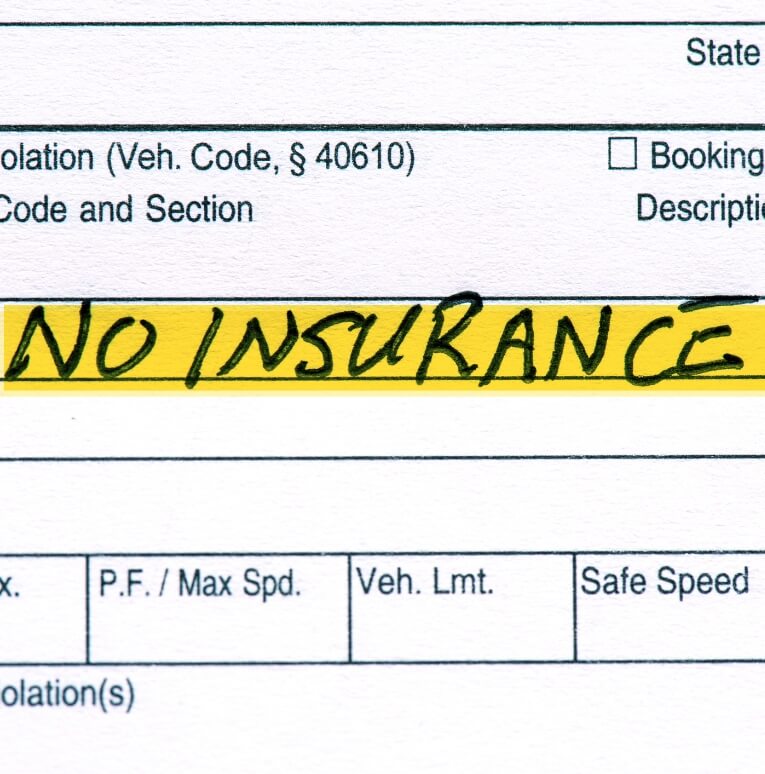
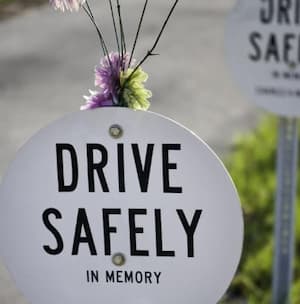











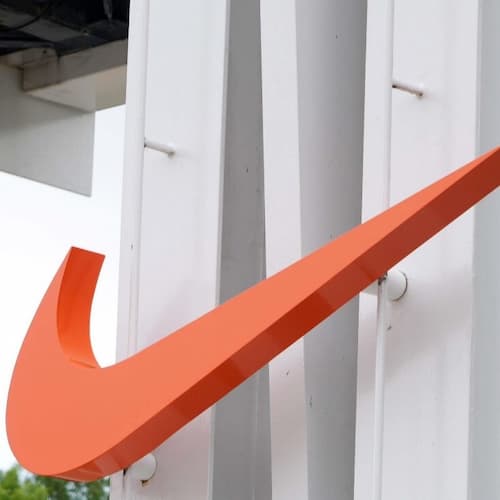











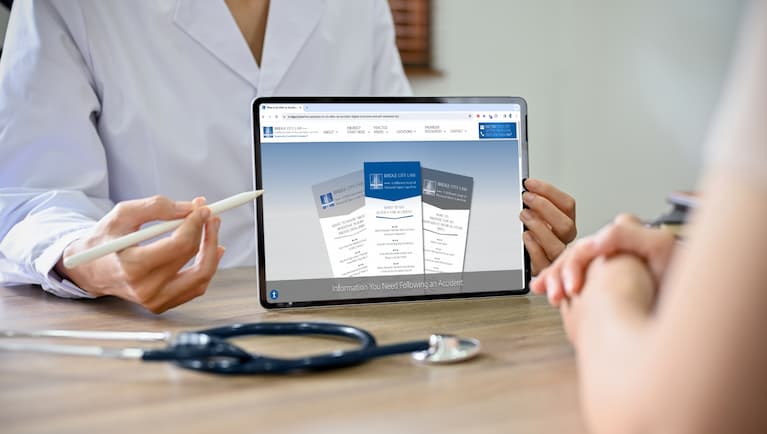



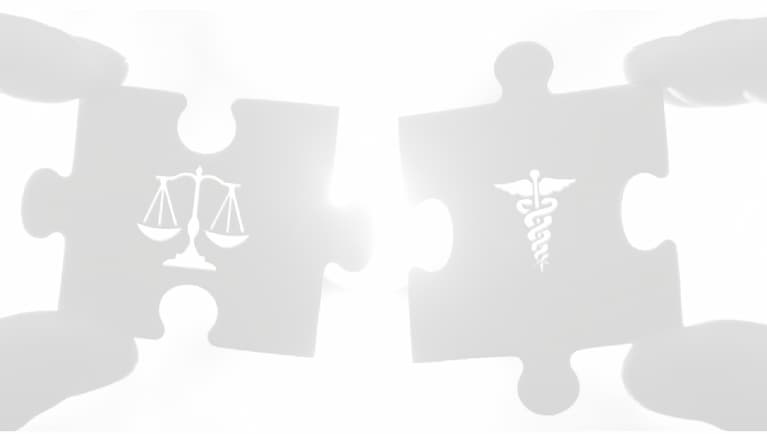



![[FOR MEDICAL PROVIDERS] #4 Not Asking Enough Questions About Potential Preexisting Conditions](https://www.bridgecitylawfirm.com/wp-content/plugins/wp-youtube-lyte/lyteCache.php?origThumbUrl=https%3A%2F%2Fi.ytimg.com%2Fvi%2FqS0iS4rRgFc%2F0.jpg)